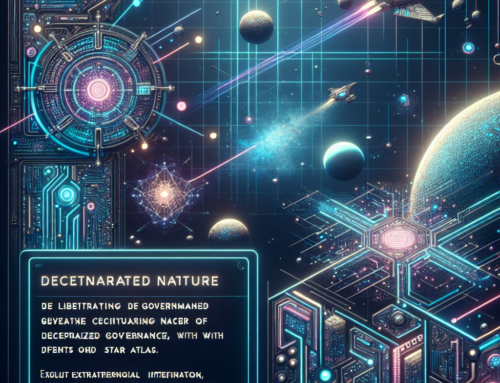Star Atlas: Navigating the Future of Space Policy

Star Atlas: Navigating the Future of Space Policy
As we find ourselves on the brink of a new era defined by digital worlds and sprawling metaverses, games like Star Atlas are transforming not just entertainment but the very concept of governance and space policy. Star Atlas, set in a distant future where humanity explores the cosmos, combines intricate storytelling with cutting-edge technology. It offers players a universe where their actions impact the game’s economy and politics, much like how national space policies shape real-world exploration.
Understanding Space Policy in Star Atlas
Space policy refers to the set of laws, guidelines, and practices that govern space exploration and utilization. In the context of Star Atlas, this translates into how players interact with one another, manage their assets, and navigate alliances. Here’s a closer look at some key aspects:
-
Governance Structures:
In Star Atlas, players have the opportunity to form alliances, or factions, that can influence strategic decisions. These governance structures mimic how nations collaborate or compete in real-world space policy. Players must advocate for policies that benefit their factions while engaging in diplomacy or conflict with others. -
Resource Management:
Just as countries must manage scarce resources in space, players in Star Atlas must gather, mine, and trade valuable in-game assets. Effective resource management not only fuels individual growth but also impacts the faction’s economy. This mirrors real-life considerations regarding resource extraction in space, where nations must weigh economic benefits against ecological preservation. -
Regulatory Measures:
Players in Star Atlas can encounter regulations within the game that govern trade, exploration, and spacecraft usage. These rules often reflect real-world regulatory frameworks that aim to maintain order and safety in space. Understanding and navigating these regulations is key for players looking to advance in the game. -
Technological Innovation:
The technological advances depicted in Star Atlas—like advanced spacecraft and AI—is not far from the innovations seen in real-life space exploration. Players can strategize around technological investments, mirroring how nations invest in research and development to maintain their competitive edge in space. - Sustainability:
As humanity explores space, we face ethical questions regarding sustainability—another layer present in Star Atlas. Players must consider the long-term implications of their actions, much like the balanced approach countries must take when exploring new frontiers.
Impact on Players and Communities
The collaborative nature of Star Atlas encourages players to engage in meaningful dialogue about space policy, influencing each other’s strategies and decisions. By aligning their goals with those of their factions, players not only enhance their gaming experience but also develop skills in negotiation, strategy, and community building—skills that will be crucial as we venture further into real-world space exploration.
As Titan Analytics continues to support the Star Atlas community as a Solana validator and analytics platform, we encourage players to explore the data modules available on our website. These modules offer valuable insights that can enhance your strategic approach and inform your decisions in this dynamic universe.
Explore our Star Atlas data modules here or reach out to us for more information here. Join us in navigating the future of space policy through the lens of Star Atlas!




